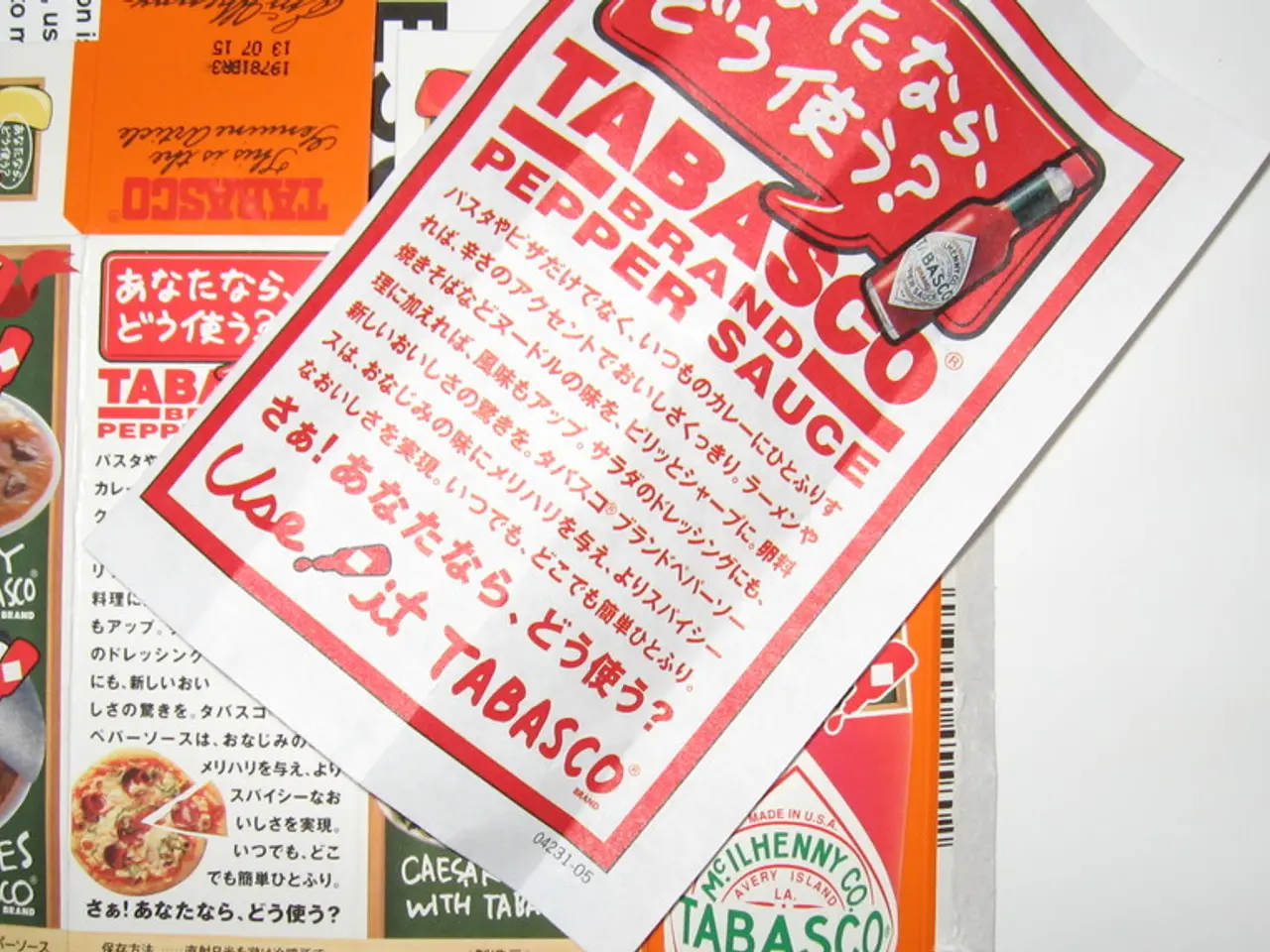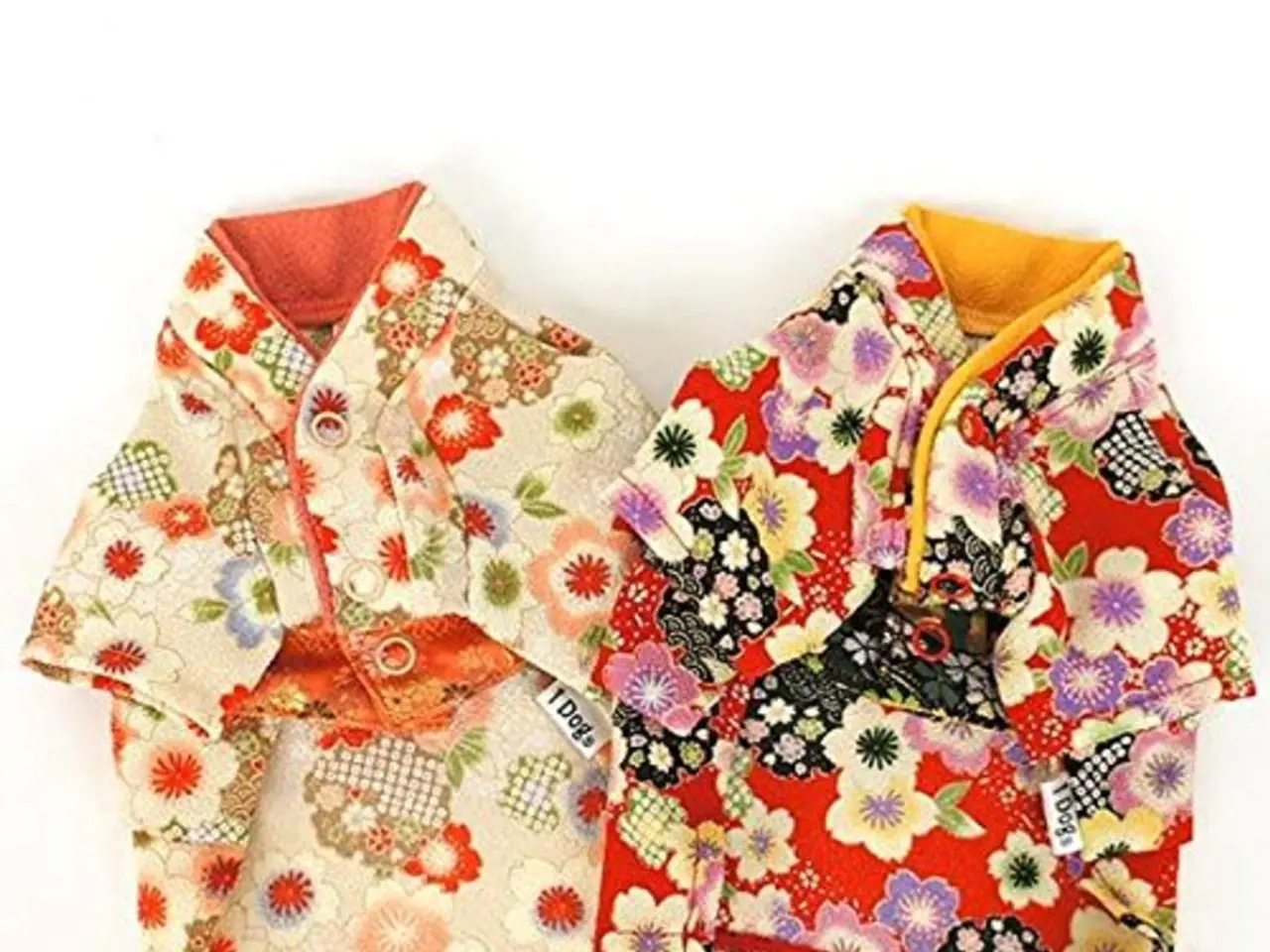Insights derived from the American Eagle's controversial partnership with Sydney Sweeney: a marketing analysis
American Eagle's latest marketing venture, featuring actress Sydney Sweeney, has sparked a wave of controversy. The campaign, which promotes a new jean style called "The Sydney Jean," has come under fire for its use of the word "genes" and its perceived links to eugenics and white supremacy.
In the ad, Sweeney states, "Jeans are passed down from parents to offspring often determining traits like hair color, personality, and even eye color." This wording and concept have led to accusations that the campaign inadvertently endorses dangerous ideas related to genetic superiority.
The debate intensified on social media platforms like TikTok, where people expressed discomfort and offense, claiming the ad inappropriately links denim jeans to hereditary genetics and eugenics, a historically discredited and harmful ideology. Others defended the campaign as a misunderstanding or a creative metaphor about jeans being "passed down" through generations in families, not actual genetic traits.
The controversy has not been limited to the use of the word "genes." Some consumers find the campaign's tone for marketing women's jeans to be sexual and targeted towards the "straight male gaze." Additionally, there are concerns that American Eagle is targeting White men and women, potentially losing customers who feel excluded.
In response to the backlash, American Eagle published a post featuring a racially ambiguous model on Instagram. However, the post has since been removed from their social media accounts.
Despite the controversy, American Eagle has announced that proceeds from "The Sydney Jean" will be donated to Crisis Text Line, a non-profit offering 24-hour mental health support.
The intention behind the campaign is not yet known, and it is unclear if the brand tested the campaign concept with consumers before making a significant investment. Ashely Schapiro, American Eagle's vice president of marketing, media, performance, and engagement, has stated that the campaign had a double meaning behind it.
This controversy serves as a reminder that brands have the power to influence people's self-image and perceptions of others. Marketing should avoid promoting superiority of certain traits, and smart marketers should include people who have the identities of the ideal customers in their creative process from start to finish and test their campaigns with their intended audience before launching.
Brands have a right to choose which consumers they want to serve, but should be prepared for reactions from those who are excluded. A Reddit thread discusses the ad, with commenters criticizing the marketing team for poor taste and racial implications. Unilever previously removed the word "normal" from all packaging and campaigns for their beauty and personal products, setting a precedent for responsible marketing practices.
Some consumers have criticized the post, stating that it appears inauthentic and makes the situation worse. Marketers should focus on the impact of their campaigns, not just their intentions. As the debate continues, American Eagle remains silent, having not yet responded to requests for comment regarding the backlash and the post.
[1] Sources: TikTok, Reddit, Various Online News Outlets.
- The controversy surrounding American Eagle's "The Sydney Jean" campaign has escalated on social media platforms like TikTok and Reddit, with discussions centered on the perceived link between denim jeans, hereditary genetics, and eugenics.
- Critics on social media have accused the ad of inappropriately endorsing ideas related to genetic superiority and addressing a predominantly White audience, while others view it as a misunderstood creative metaphor about jeans being "passed down" through generations in families.








